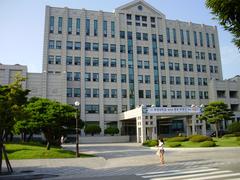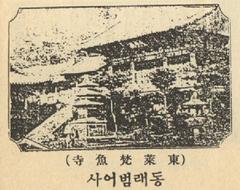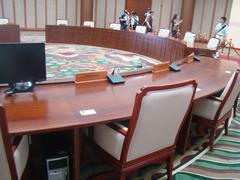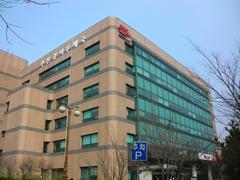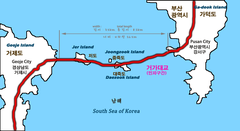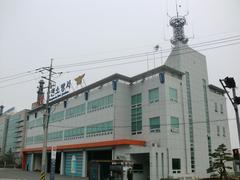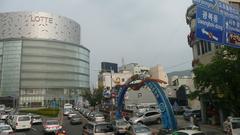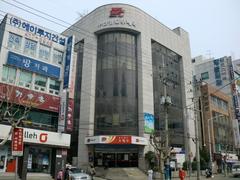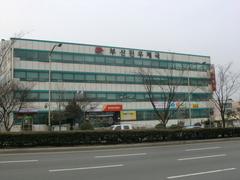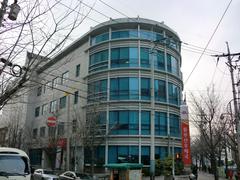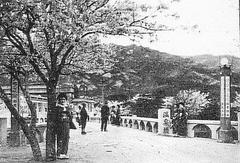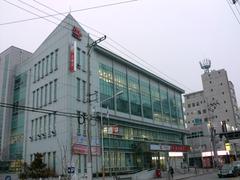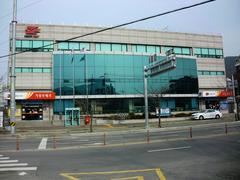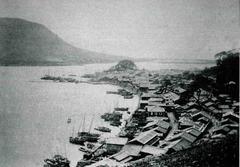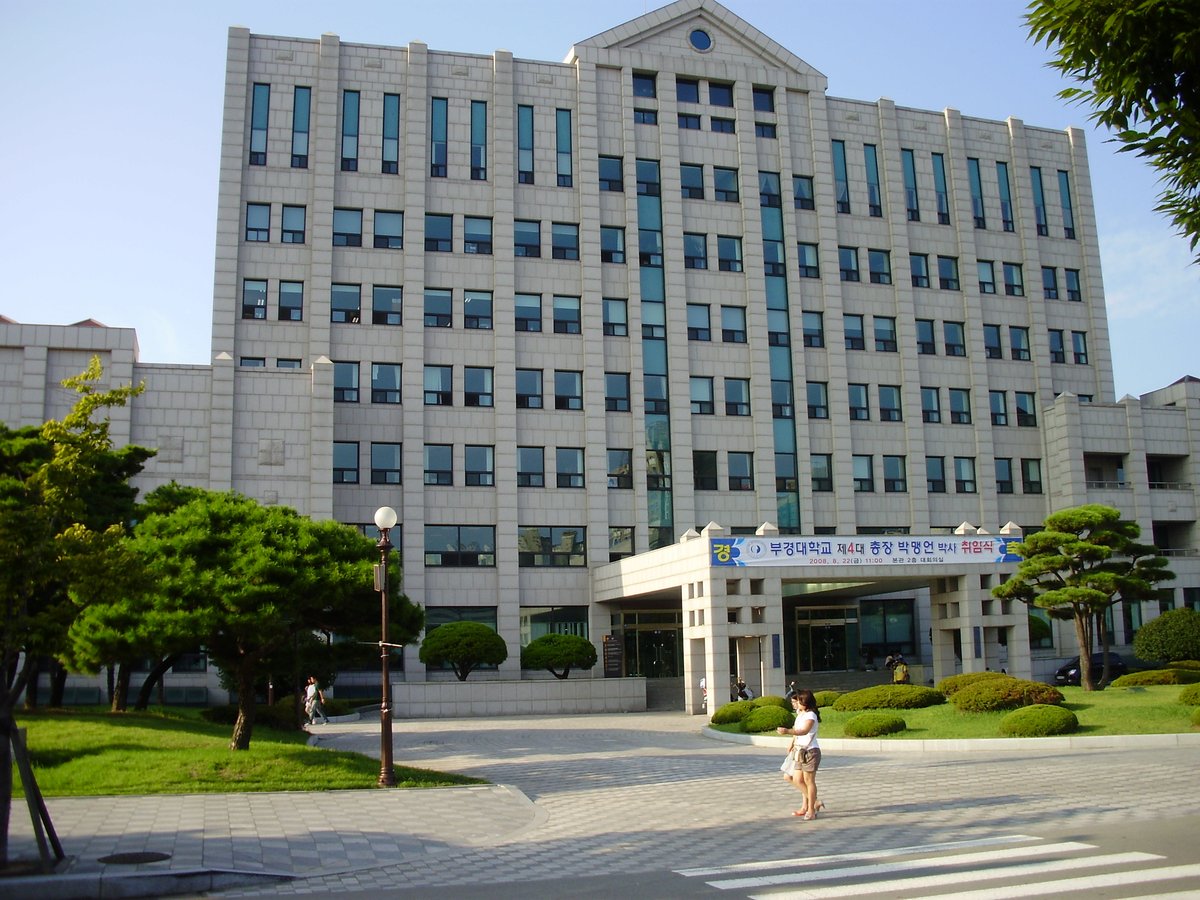
Pukyong National University Visiting Hours, Tickets, and Busan Historical Sites Guide
Date: 14/06/2025
Introduction
Pukyong National University (PKNU) in Busan, South Korea, stands as a distinguished institution celebrated for its academic excellence, significant maritime heritage, and vibrant cultural influence. Established in 1996 through the merger of the Busan National University of Technology (1924) and the National Fisheries University of Busan (1941), PKNU is both an educational leader and a key historical site in Busan. Its campuses, Daeyeon and Yongdang, are home to cultural landmarks, lush gardens, and unique sculptures such as the Pukyongsaurus Millenniumi. With more than 26,000 students and extensive international partnerships, PKNU is a hub of research, innovation, and global engagement.
This guide provides comprehensive information for visitors—including access details, ticketing, campus highlights, travel tips, and recommendations for nearby attractions—making PKNU an essential destination for those interested in Busan’s academic and maritime legacy (PKNU Official Visitor Information, EduRank, Busan Tourism Official Website).
Table of Contents
- Overview and Significance
- Visiting Hours and Ticketing
- Historical and Cultural Highlights
- Guided Tours and Special Events
- Accessibility and Facilities
- Visitor Travel Tips
- Nearby Attractions
- Academic Prestige and Rankings
- International Partnerships and Recognition
- Research Excellence
- Cultural and Societal Impact
- Student and Alumni Reputation
- PKNU vs. Other Institutions
- Frequently Asked Questions (FAQ)
- Visuals and Visitor Resources
- Directions and How to Get There
- Conclusion and Next Steps
- References
Overview and Significance
Pukyong National University is a leading center for education and research in marine and fisheries sciences, environmental studies, and engineering. Its campuses offer not only academic resources but also public gardens, museums, and monuments that reflect Busan’s deep-rooted maritime and technological heritage. PKNU is widely recognized for hosting the World Fisheries University pilot graduate program under the Food and Agriculture Organization of the United Nations and for maintaining strong global academic collaborations.
Visiting Hours and Ticketing
- Campus Hours: Both Daeyeon and Yongdang Campuses are open to visitors daily from 9:00 AM to 6:00 PM.
- General Access: Walking the campus grounds and visiting gardens is free.
- Museum and Exhibitions: The PKNU Museum and select exhibitions may charge a small fee (typically 2,000–5,000 KRW). Most outdoor and public spaces are free; check the official PKNU website for updated information.
- Guided Tours: Available by advance booking for groups and academic visitors. Contact the PKNU visitor center for arrangements.
Historical and Cultural Highlights
- Formation and Legacy: PKNU was formed from two historic institutions, specializing in fisheries and technology, symbolizing Busan’s role as a maritime capital.
- Daeyeon Campus Monument: A key landmark commemorating the university’s history and contributions to Korea’s marine sciences and technology. The area is especially picturesque during the cherry blossom season.
- Museums and Collections: The PKNU Museum houses over 2,500 artifacts, including archaeological finds and marine science exhibits.
- Sculptures and Gardens: Notable installations like the Pukyongsaurus Millenniumi, Baekyong Garden, and Haneoul Garden provide tranquil spaces and photo opportunities.
Guided Tours and Special Events
- Campus Tours: Organized tours include visits to marine science facilities, research centers, and campus landmarks. Book through the Office of International Affairs.
- Special Events: Annual open campus days, cultural festivals, and historical exhibitions offer interactive experiences. Check event calendars for details.
Accessibility and Facilities
- Public Transport: PKNU is easily accessible via Busan Metro Line 2 (Kyungsung University–Pukyong National University Station, exits 3 or 5) and multiple city bus routes.
- Campus Facilities: Wheelchair-accessible paths, ramps, accessible restrooms, cafes, rest areas, and souvenir shops are available.
- Parking: Limited; public transportation is recommended.
- Language Support: English signs and assistance are available, especially at the visitor center and during international events.
Visitor Travel Tips
- Best Seasons: Spring (cherry blossoms) and autumn provide pleasant weather and vibrant campus scenery.
- Photo Opportunities: Gardens, monuments, and coastal views offer beautiful backdrops.
- Etiquette: Respect academic activities, observe quiet in libraries and research facilities, and dress modestly.
Nearby Attractions
- Gwangalli Beach: A short walk, known for its coastal views and nightlife.
- Kyungsung University District: Vibrant with cafes, restaurants, and cultural events.
- Haeundae Beach, Gamcheon Culture Village, and Jagalchi Fish Market: Top Busan attractions easily accessible from PKNU.
- Other University Landmarks: Yongdang Campus and marine research centers.
Academic Prestige and Rankings
- National Standing: PKNU consistently ranks among the top 25 universities in South Korea and is renowned for marine and fisheries sciences (EduRank).
- Global Impact: Over 23,000 academic publications and 390,000 citations showcase its research influence.
- Student Body: Over 26,000 students, including a growing international population.
International Partnerships and Recognition
- Global Collaborations: PKNU partners with over 200 institutions worldwide and hosts more than 1,000 international students.
- FAO World Fisheries University: Selected by the UN’s Food and Agriculture Organization as the site for the World Fisheries University pilot program (PKNU Brochure, 2017).
Research Excellence
- Marine & Fisheries Science: Leading programs in oceanography, aquaculture, and fisheries management.
- Environmental Science, Engineering, Chemistry, Biology: National and international recognition for research output and innovation.
- Interdisciplinary Strengths: Notable work in computer science, mathematics, and business.
Cultural and Societal Impact
- Community Engagement: PKNU collaborates with local government and industry, supports internships, and hosts cultural events.
- Museum Exhibitions: Public access to marine artifacts and educational displays fosters community learning (Busan Metropolitan City).
Student and Alumni Reputation
- Campus Life: Diverse academic offerings, robust language and culture programs, and international student support.
- Alumni Network: Graduates excel in academia, government, and industry both in Korea and globally.
PKNU vs. Other Institutions
- Regional Leadership: Alongside Pusan National University, PKNU is a top academic institution in Busan, distinguished by its focus on marine sciences and practical research (University Guru).
Frequently Asked Questions (FAQ)
Q: Is there an entrance fee to visit PKNU?
A: General campus access is free; museum and special exhibitions may charge a small fee.
Q: Are guided tours available?
A: Yes, arrange tours by contacting the PKNU visitor center or Office of International Affairs.
Q: What are the visiting hours?
A: 9:00 AM to 6:00 PM daily.
Q: Is PKNU accessible for people with disabilities?
A: Yes, accessible facilities and pathways are available.
Q: How do I get to PKNU?
A: Via Busan Metro Line 2 (Kyungsung University–Pukyong National University station, exits 3 or 5) or city buses.
Q: What are some nearby attractions?
A: Gwangalli Beach, Haeundae Beach, Gamcheon Culture Village, and Jagalchi Fish Market.
Visuals and Visitor Resources
- Virtual Tours & Galleries: Available on the PKNU Official Visitor Information website.
- Photo Kiosks: Interactive displays on campus enhance the visitor experience.
- Event Calendars: Check the website for updates on festivals and exhibitions.
Directions and How to Get There
- By Metro: Busan Metro Line 2 to Kyungsung University–Pukyong National University station, exits 3 or 5.
- By Bus: City routes 20, 22, 27, 39, and 131.
- On Foot: The campus is pedestrian-friendly, with clear signage in English and Korean.
Conclusion and Next Steps
Pukyong National University offers visitors a remarkable blend of academic achievement, cultural heritage, and scenic beauty. Whether you are drawn by its marine science legacy, vibrant student life, or tranquil gardens, PKNU is an essential stop for anyone exploring Busan.
For updated visitor information, event schedules, and to book guided tours, visit the PKNU Official Visitor Information page. Enhance your visit by downloading the Audiala app for curated campus guides and following PKNU’s social media channels for the latest news.
References
- PKNU Official Visitor Information
- EduRank University Rankings
- Busan Tourism Official Website
- PKNU Brochure, 2017
- Busan Metropolitan City Facilities Information
- University Guru: PKNU Profile
- Busan Metro Information
